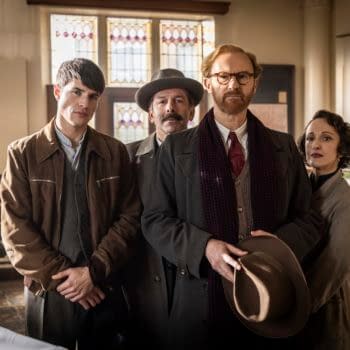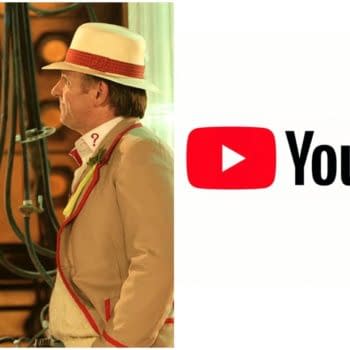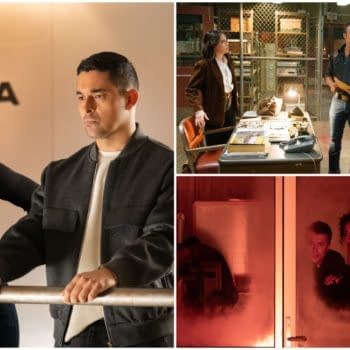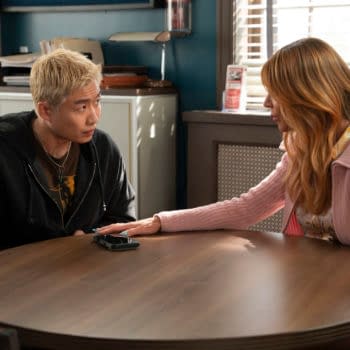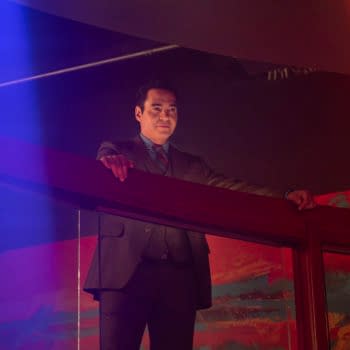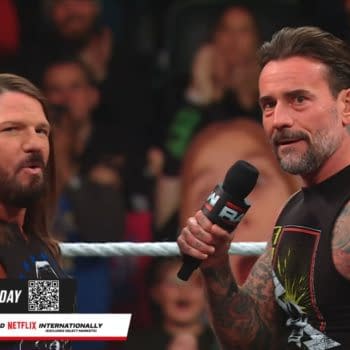Posted in: Disney XD, Disney+, Marvel, Opinion, Review, streaming, TV, TV | Tagged: bleeding cool, cable, disney, elizabeth olsen, kathryn hahn, Marvel Cinematic Universe, opinion, paul bettany, streaming, televisio, television, The Vision, tv, wanda maximoff, WandaVision
WandaVision: It Was Wanda All Along As MCU's First Antiheroine
WandaVision reached its conclusion and it turned out to be an origin story after all, as most superhero stories on TV and movies prefer to be. It was about how Wanda Maximoff (Elizabeth Olsen) became The Scarlet Witch, the Marvel Cinematic Universe's first antiheroine. She was both hero and villain in her story. It managed to both deliver on all the usual tropes of MCU stories and subvert them at the same time. It's a relief that the fan theories were proven wrong. WandaVision did not turn out to be some big epic reveal about the multiverse. From this point forward, consider the "MAJOR SPOILERS AHEAD!" sign officially on.
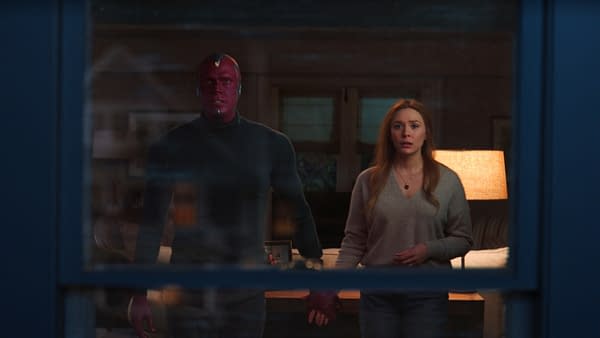
It didn't trot out a gimmicky surprise cameo by Mephisto or the X-Men or Stan Lee's newly exhumed corpse. It was a character study of how grief drives one woman to madness, causing damage before she comes back to her senses and emerges stronger. MCU stories push the theme of transformation and Wanda transforms into the Scarlet Witch, a creature from myth that's forged not born. The Scarlet Witch is shaped by pain and suffering to become a figure who's destined to destroy the world. The interesting wrinkle here is that Wanda may emerge powerful, mysterious, and awe-inspiring, even terrifying, but it's not truly triumphant. She's both the villain and the hero of the story.
What Wanda does to the people of Westview is monstrous: she traps them as puppets to enact cozy sitcom scenarios while their children are kept in comas in bed while they're trapped in their heads fully aware of being controlled. It's a metaphor for a grieving woman lashing out, running away from her pain and causing pain to those around her in a psychotic break. She doesn't mean to hurt anyone but in her deranged state, she bends the world to her will and creates the archetypal Marvel crisis of a besieged town that needs to be saved. It takes Agatha Harkness (Kathryn Hahn) to bring her to her senses and make her realize she has to stop and free the people of Westview.
That's really what Agatha's function in the story is – she's Wanda's dark mirror double. The climax of WandaVision follows every MCU plot: the hero has to fight a dark or evil version of herself at the end. Even Vision (Paul Bettany) has to fight another Vision. The symbolism here is more upfront than other MCU movies. Agatha is considered evil because she's greedy and malicious. She plotted against Wanda for fun and she wants to take Wanda's powers for herself. She enjoys hurting people. Wanda does everything out of love and self-preservation and is guilt-ridden when she realizes she's harmed a whole town, and immediately tries to put things right, sacrificing her family to save Westview. Restoring Westview isn't Wanda winning, it's her apology. Vision ending his fight with the other Vision through a logic test also subverts the usual bloodthirsty trope of the good guy killing his evil mirror image.
Antiheroes are misunderstood heroes who do unheroic things, even bad things. That's the Scarlet Witch: not evil but misunderstood, and who can swing in any direction. With WandaVision, Wanda emerges in control of her power and more confident, the Scarlet Witch at last. She's still guilty and remorseful for what she did to a whole town, but she will bear the burden instead of collapse into a heap. She's going to take responsibility for herself and her powers from now on, but whether she decides to be a hero or destroyer is what makes the next chapter of her story interesting.



